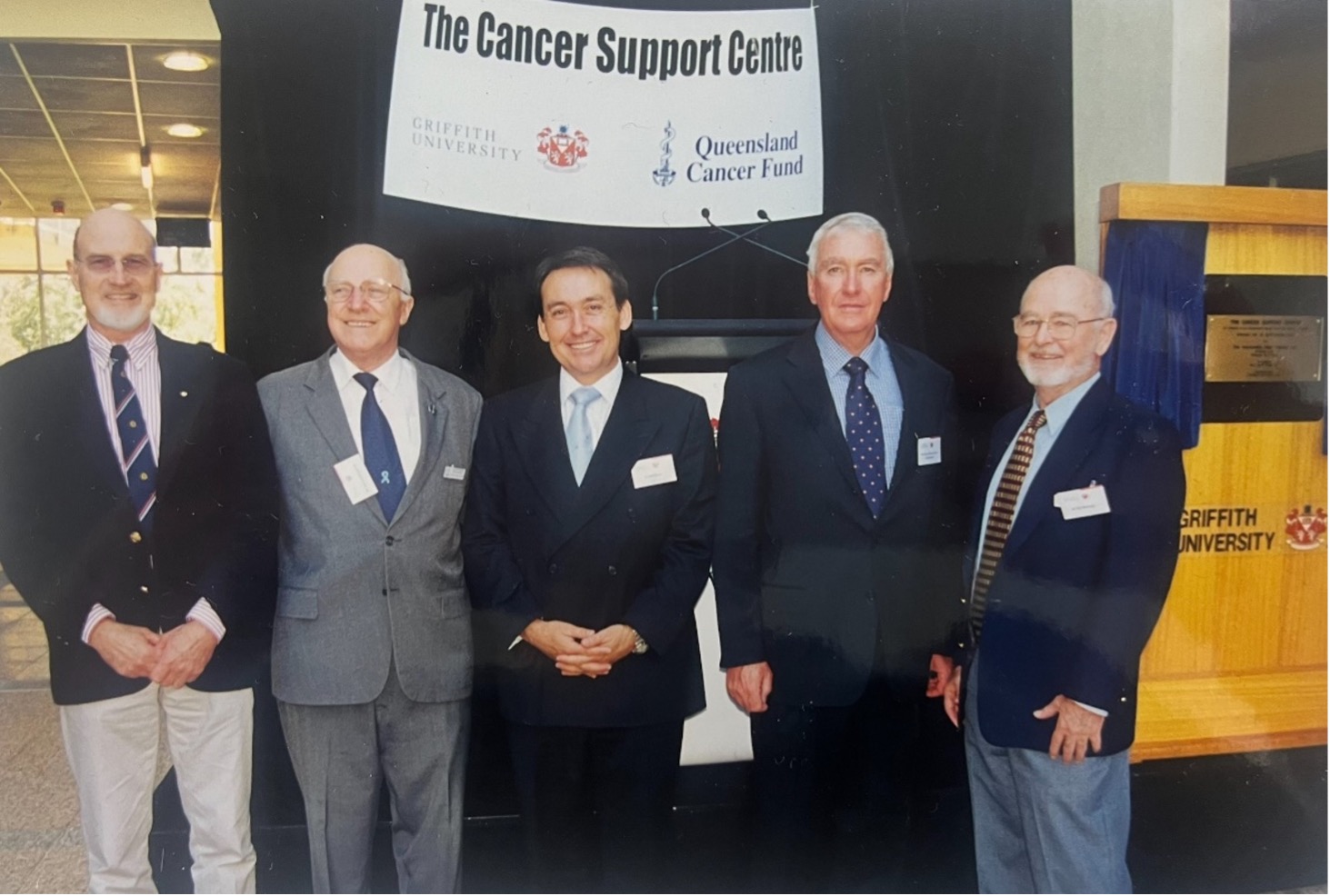13 May 2025
Peter Dornan has been one of the driving forces behind Australia’s Prostate Cancer Support Group Network, dedicating over 20 years to supporting men and their partners through a diagnosis.
His involvement started when he was diagnosed with prostate cancer at age 52 in 1996.
“At the time, I didn’t even know what my prostate was, or for that matter, what it did,” he said.
“To me, at the time, surgery seemed to offer the best chance of survival. However, after the surgery, there was a vicious trade-off. I was left severely incontinent.
“In fact, I was also suffering from erectile dysfunction, a situation in itself I was not coping with. I become very despondent and developed reactive depression.
“Worse still, I could find no other man who had been through this process. I felt very isolated. In my mind, I was the only man in the world in this situation.
“The frustration, anger – and indeed, often rage – I felt led me to resolve to change things.”
From here, Mr Dornan put an advert in his local paper in Brisbane and formed the first Prostate Cancer Support Group in Queensland.
He continued to lead the Support Group for more than 20 years, convening over 230 meetings, before stepping into retirement in 2016.
His aim? “To support and educate ourselves, to create community awareness of prostate cancer, and to encourage research into all aspects of prostate cancer.”
The Brisbane Group soon became one of the largest prostate cancer support groups in Australia, and played a pivotal role in the formation of Prostate Cancer Foundation of Australia in the late 90s.
“Over the years, as well as assisting men to take control of their lives and health, we had driven the development of the men’s health movement, a phenomenon that did not exist before men stood shoulder-to shoulder in the fight against prostate cancer. As such, I proudly wear the mantle of ‘Men’s health advocate and Activist’,” he said.
Mr Dornan said the advances in research, awareness and support since his diagnosis have been tremendous, with a noticeable reduction in stigma associated with prostate cancer.
“When I was diagnosed, it was so taboo to talk about prostate cancer. A nun once said to me, ‘You should never tell anyone about this’ referring to my side effects,” he said.
“But what we found is that if men talked about their problems, then they knew they were not alone, and this was a great help.”
After launching one of Australia’s largest Support Groups, Mr Dornan, a physiotherapist by trade, also went on to develop a full exercise routine, released in his book, ‘Conquering Incontinence’, to help men rehabilitate and cope with the side effects of treatment. This continues to be used by Support Groups as a vital resource.
In 2002, Mr Dornan was appointed as a Member of the General Division of the Order of Australia (AM) for his contribution to sports medicine and physiotherapy, prostate cancer and men’s health, military history and sculpture.
PCFA Chief of Mission and Head of Research Professor Jeff Dunn AO thanked Mr Dornan for his exceptional contribution to all men impacted by prostate cancer.
“We are tremendously grateful for Peter’s profound lifetime contribution and service,” Prof Dunn said.
“For more than 20 years, he served as a community leader to raise awareness and ensure that men and their partners do not have to walk the journey of prostate cancer alone.
“I speak for all those in our community when I convey my abiding gratitude to Peter for the exceptional difference he has made to so many Australians impacted by prostate cancer, improving survivorship outcomes for all.”
When asked if he had any advice for men diagnosed, Mr Dornan said, “Seek help. You can do that through a Support Group, or a Prostate Cancer Specialist Nurse. Talk to your partner, talk to your doctor, talk to other men, and talk to health professionals.
“It’ll make a big difference.”
Looking ahead, Mr Dornan said his next focus is on his latest book, In search of Manhood: A guide to better male health and lifestyle. Now available on Amazon.

Peter Dornan AM, alongside Spence Broughton, Jeff Dunn AO, Richard Chesterman AO, and Bill McHugh.
